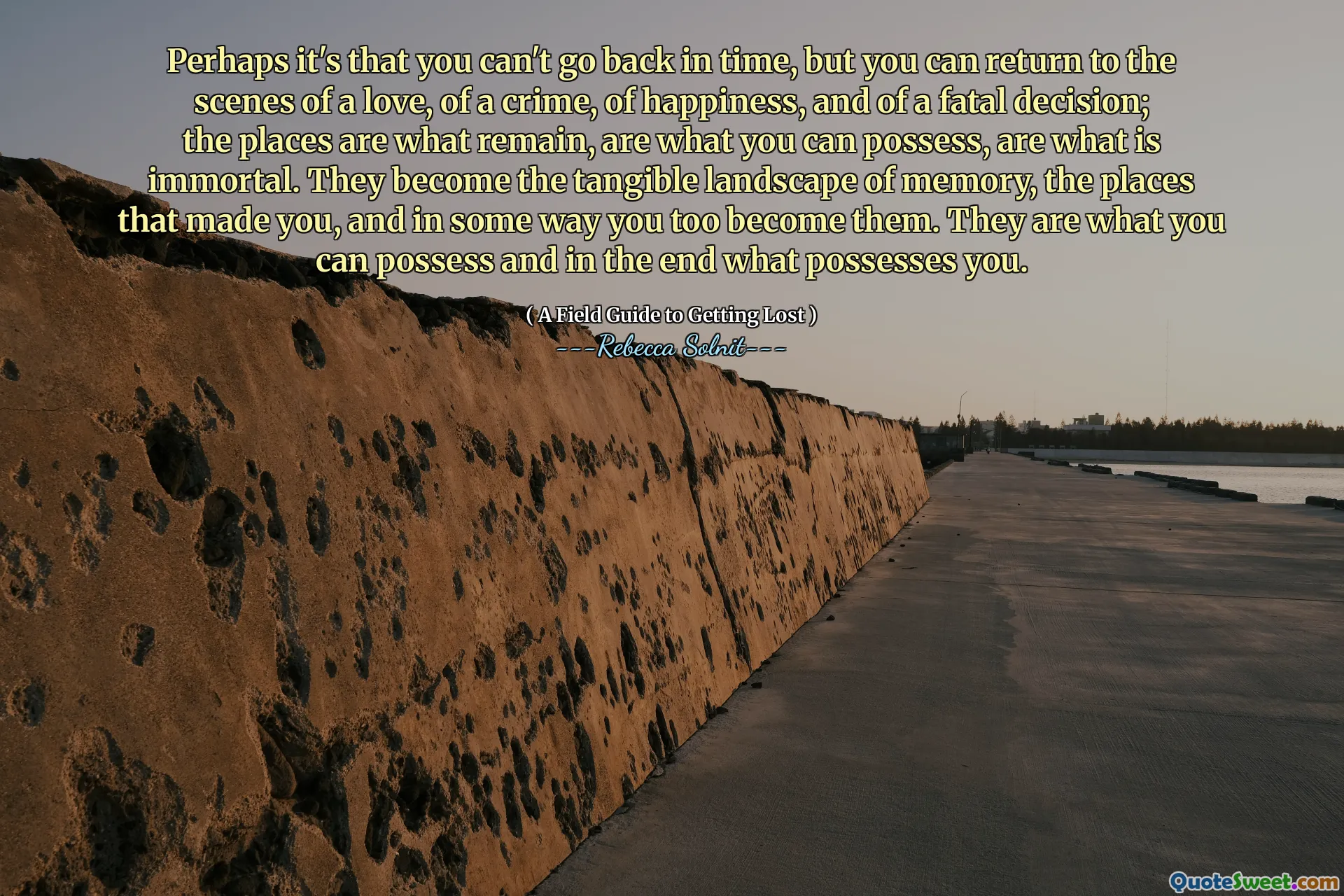
Perhaps it's that you can't go back in time, but you can return to the scenes of a love, of a crime, of happiness, and of a fatal decision; the places are what remain, are what you can possess, are what is immortal. They become the tangible landscape of memory, the places that made you, and in some way you too become them. They are what you can possess and in the end what possesses you.
This quote beautifully explores the powerful role that physical places and environments play in shaping our memories and identity. It suggests that while time travel may be impossible, revisiting specific locations allows us to reconnect with pivotal moments of our past—whether filled with love, tragedy, joy, or regret. These places act as anchors of our personal history, preserving moments that have transformed us and made us who we are. The idea that the landscape of our memories is tangible emphasizes the sense that our personal histories are not ephemeral or abstract but material and accessible through our senses and imagination.
Furthermore, the quote speaks to the duality of possession and being possessed by those locations. Our memories of these sites can become intertwined with our sense of self, almost as if they take on a life of their own, influencing our current perceptions and decisions. It evokes a sense of nostalgia and longing but also a recognition of the inescapable influence that our past environments hold over our ongoing journey. This perspective encourages us to acknowledge and perhaps cherish the powerful, lasting imprint of meaningful places in our lives, understanding that they are integral to our identity and consciousness.
The reflection on place and memory invites a deeper exploration of how our environments shape personal narrative, offering solace and a profound connection to our history. It underscores the importance of our physical surroundings as repositories of our life's stories, reminding us that memories, though intangible, can feel as real and enduring as any tangible object.






